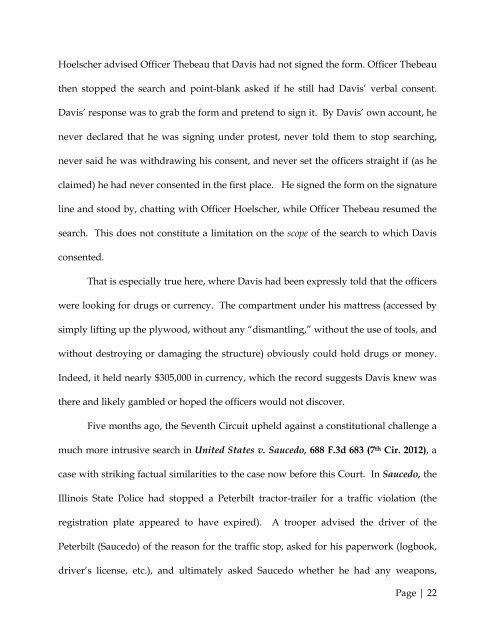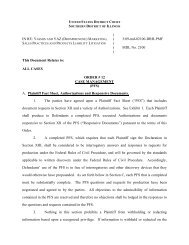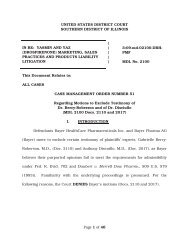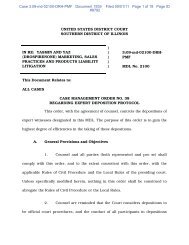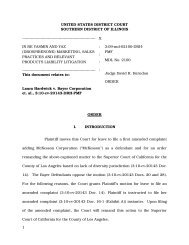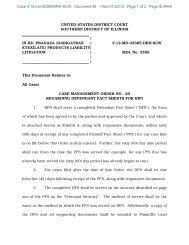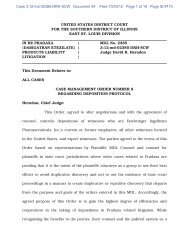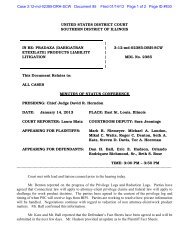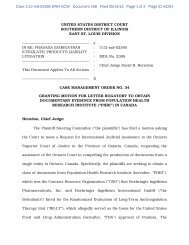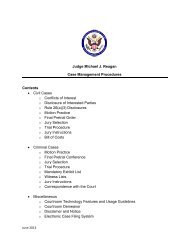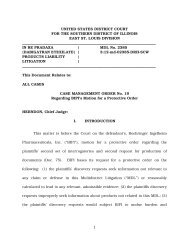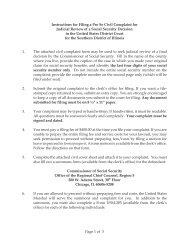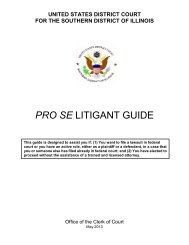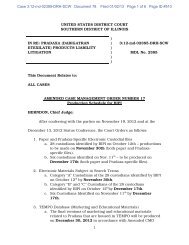Page | 1 IN THE UNITED STATES DISTRIC COURT FOR THE ...
Page | 1 IN THE UNITED STATES DISTRIC COURT FOR THE ...
Page | 1 IN THE UNITED STATES DISTRIC COURT FOR THE ...
Create successful ePaper yourself
Turn your PDF publications into a flip-book with our unique Google optimized e-Paper software.
Hoelscher advised Officer Thebeau that Davis had not signed the form. Officer Thebeau<br />
then stopped the search and point-blank asked if he still had Davis’ verbal consent.<br />
Davis’ response was to grab the form and pretend to sign it. By Davis’ own account, he<br />
never declared that he was signing under protest, never told them to stop searching,<br />
never said he was withdrawing his consent, and never set the officers straight if (as he<br />
claimed) he had never consented in the first place. He signed the form on the signature<br />
line and stood by, chatting with Officer Hoelscher, while Officer Thebeau resumed the<br />
search. This does not constitute a limitation on the scope of the search to which Davis<br />
consented.<br />
That is especially true here, where Davis had been expressly told that the officers<br />
were looking for drugs or currency. The compartment under his mattress (accessed by<br />
simply lifting up the plywood, without any “dismantling,” without the use of tools, and<br />
without destroying or damaging the structure) obviously could hold drugs or money.<br />
Indeed, it held nearly $305,000 in currency, which the record suggests Davis knew was<br />
there and likely gambled or hoped the officers would not discover.<br />
Five months ago, the Seventh Circuit upheld against a constitutional challenge a<br />
much more intrusive search in United States v. Saucedo, 688 F.3d 683 (7 th Cir. 2012), a<br />
case with striking factual similarities to the case now before this Court. In Saucedo, the<br />
Illinois State Police had stopped a Peterbilt tractor-trailer for a traffic violation (the<br />
registration plate appeared to have expired). A trooper advised the driver of the<br />
Peterbilt (Saucedo) of the reason for the traffic stop, asked for his paperwork (logbook,<br />
driver’s license, etc.), and ultimately asked Saucedo whether he had any weapons,<br />
<strong>Page</strong> | 22


